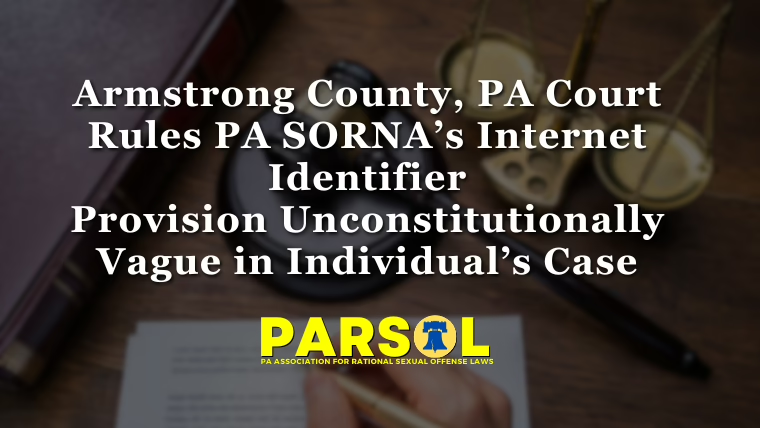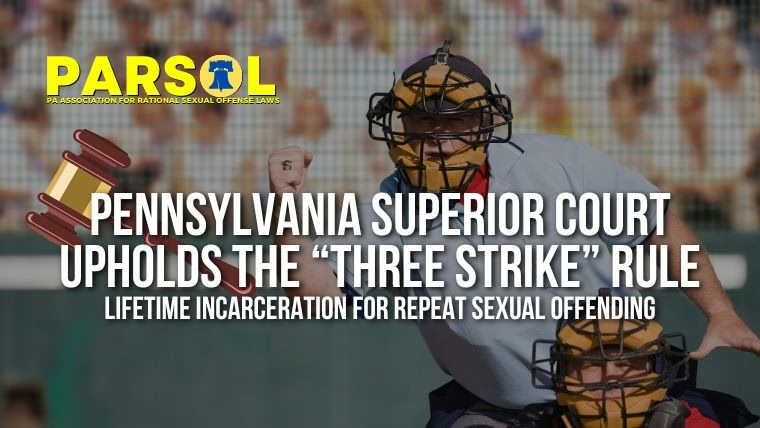The Constitution of Pennsylvania ensures the basic rights of all citizens of this Commonwealth.
In this deep dive going back to the founding of our state, our legal team explores PA’s unique Constitutional protection: the Right to Reputation.
The history of Pennsylvania is an inspirational story for anyone who is looking for a chance at a clean slate in life. This story starts with our founder William Penn. He lived in England where the Anglican Church was the faith of the entire country. Anything other than Anglican was considered heretical.
There was a minority of Puritans and Quakers who were deeply persecuted. Penn was born Anglican but then took a journey of faith that led him to become a Quaker. He had a strong principle that no one should be forced to worship in one single way. It was for this belief that he was tried, convicted, and labeled as a felon.
Penn had served his sentence in the Tower of London. After his release, England still, and would forever see Penn as a felon. He didn’t feel this was justifiable, since the sentence that was laid upon him was completed. Penn believed that completing the sentence was the expiation for the guilty verdict. He saw that the only way to restore his reputation was to flee England and create a land that would be open to religious freedom and second chances. He founded such a land in the New World.
“XXX. That all scandalous and malicious reporters, backbiters, defamers, and spreaders of false news, whether against Magistrates, or private persons, shall be accordingly severely punished, as enemies to the peace and concord of this Province,” (William Penn’s May 5, 1682 Frame of Government of Pennsylvania). All of what Penn wrote there concerns protecting reputation. Unlike the multiple framers of the U.S government, Pennsylvania has only one Framer, and the aforementioned subsection clearly reveals his intent.
More than expressing a concern for protecting individual reputation, Penn saw threats to reputations as “enemies to the peace and concord of this Province.” Harm to any individual’s reputation harms the entire state, which turns the entire idea of public registries for public safety on its head. Think of how any official sanction of damage to reputation has been a precursor for destabilizing entire states: slavery and the Civil War; Armenians and Turkey; Jews and the Holocaust; and “cutting the tall trees” in Rwanda. History is full of examples of official dehumanization encouraging violence. In Respublica v. Cobbet, 3 Yeats 93; 1800 Pa.LEXIS 56 (1800), the Court touched on how damage to reputation can provoke others to violence against the person whose reputation has been damaged: “Any written or printed publications, pictures, signs, or the like, which set a man in an odious or ridiculous light, and thereby diminish his reputation, are libels, and every libel has a tendency to break the peace, or others to break it.” This principle seemed so commonly accepted that no Pennsylvania General Assembly was provoked to protect it with constitutional preservation until 1790. What provoked the Legislature to act? I may have found it!
The case of Respublica v. Oswald, 1 U.S. 319; I L.Ed. 155; 1 Dall. 319; 1788 U.S. LEXIS 529 (1788). It’s a crazy case with a crazy cast of characters. Eleazar Oswald was the publisher of the Independent Gazetteer newspaper. Andrew Brown sued Oswald for libel. After Oswald’s bail hearing, where his bail was granted, he published his own account of the hearing, accusing “federalist” judges of conspiring against him. He accused Brown of being the puppet of Beniamin Rush (Philadelphia’s most famous doctor, lawyer, personal friend of Benjamin Franklin, and signer of the Declaration of Independence). Oswald, in turn, implied that Rush was controlling the Common Pleas judge through his brother on the PA Supreme Court, Jacob Rush.
Two months later on 9/5/1788, Oswald pled his case directly to PA’s General Assembly, which “resolved itself into a committee of the whole” to hear 3 days of testimony on whether to impeach the judges in Oswald’s case. Afterwards, “Mr. Lewis, as a member of the house, then delivered a very elaborate argument, in vindication of the conduct of the judges; *** He then commented upon the origin, nature, and purposes of a state of society, which, he said, was principally formed to protect the rights of individuals; and of those rights, he pathetically described the right of enjoying a good name, to be the most important and most precious. He observed that the injuries, which could be done to any other property, might be repaired; but reputation was not only the most valuable, but, likewise, the most delicate of human possessions. It was the most difficult to acquire; when acquired, it was the most difficult to preserve; and when lost, it was never to be regained. If, therefore, it was not as much protected, as any other right, the aged matron, and the youthful virgin, (since purity of character is the palladium of female happiness) while they are fettered by the habits and expectations of society, are exposed and abandoned by its laws and institutions. But this evil is effectively removed when we consider the Bill of Rights as precluding any attempt to restrain the press and not as authorizing insidious falsehoods and anonymous abuse [emphasis added].”
Now with reputation being constitutionally preserved, it raises the question does a person have any reputation to protect after he or she has been convicted as a felon? In Smith v. Stewart, 5 Pa. 372,315 (1874), the court explained that although a felony conviction ruins your reputation, serving your time in prison is supposed to restore your reputation by paying your debt to society: “A convict [in prison] is a walking monument of whatever the common mind loathes in reputation. In English law books, conviction and attainder are often used synonymously, and attainder is defined to be the stain or corruption of blood, of a criminal capitally condemned. A penitentiary, with us, is the lazar-house of sin and crime, where the beautiful ideal of the law supposes that the solitude and repentance will expiate and wash away the guilt; but which in the common mind only deepens the disgrace. A bold thief, never convicted, is not half so bad, in the apprehension of the common mind, as one detected and convicted, who comes abroad with the odour of the penitentiary upon him. There is some chance for one in the world. But little or none for the other.” This is precisely what William Penn believed, and it became the conception of the new land.
The quote from the Court is powerful not only for answering the question in the positive, but for also contrasting that legal principle with the damage of public perception. Together, it puts the responsibility on the government to restore your reputation after you’ve served your time. That means reentry training, job training, life coaching, official commendation—all those things, which are the opposite of public registration and its erosion of society.
If serving your time legally restores your constitutional right to reputation, then you could sue anyone who libels (prints, writes, etc.), or slanders (speaks) of your prior convictions after you’ve completed your sentence. You could do so under PA’s Constitution Art.1 § 11. Truth is a complete defense to libel and slander accusations; but, under Smith, once you’ve completed your sentence; your prior convictions are no longer “true.” You’re no longer a convict; a prisoner; an offender. You’re no longer guilty. In economic terms, once you’ve paid that debt, no one can bill you for it. A zero balance can’t be added to a future debt. In essence, the right to reputation translates to a right to expunge all past criminal records once your sentence is finished. It makes completing penal sentences more meaningful.
In Reiser v. The William Tell Saving Fund Association, 39 Pa. 137,146 (1861), the Court explained the ex post facto prohibition in the context of the right to reputation: “This section of the Bill of Rights is violated when civil and criminal rights are not both alike tried by due process of law. The same right in both respects, is secured by section eleventh, where it is declared that all courts (civil and criminal)—’All courts shall be open and every man, for an injury done him his lands, goods, person or reputation (for every civil and criminal injury), shall have remedy by due course of law, and right and justice shall be administered without sale, denial, or delay.’ After what we have said in the other section, we need not enlarge upon this. Justice is as much violated in a civil as in a criminal case, when it is ascertained by a law that was made after it arose. By the due course of law, every transgression is to be judged by the law that existed when it arose. We deny justice when we refuse this.”
How far have we come from understanding reputation? This next case asserts that you do not need quotes or statutes to enforce reputation because it’s so fundamental. Erdman v. Mitchell, 207 Pa. 79, 90-9L (1903) “The first article of the constitution [PA’s Constitution] says: ‘That the general and essential principles of liberty and free government may be recognized and unalterably established; we declare, that all men are born equally free and independent and have certain inherent and indefeasible rights, among which are those of enjoying and defending life and liberty, of acquiring, possessing and protecting property and reputation, and of pursuing their own happiness.’ Then follows the conclusion of this section: ‘Everything in this article is excepted out of the general powers of the government and shall forever remain inviolate.’ This clause, unlike many others in the constitution, needs no affirmative legislation, civil or criminal, for its enforcement in civil courts. Wherever a court of common pleas can be reached by the citizen, these great and essential principles of free government must be recognized and vindicated by that court, and the indefensible right of liberty and the right to acquire property must be protected under the common-law judicial power of the court. Nor does it need statutory authority to frame its decrees or statutory process to enforce them against the violators of constitutional rights.”
Moreover, in Com. v. O’Brien, 312 Pa. 543, 546 (1933), the court explained that, because reputation is such a fundamental right, damage to your reputation can’t be waived: “A man is not to be deprived of his liberty and reputation because of the inadvertence of a trial judge or the carelessness of his counsel in failing to call to the attention of the trial court to palpable error which offends against the fundamentals of a fair and impartial trial.” This quote was repeated in Com. v. Robin, 317 Pa. 321,323 (1934). What Erdman and O’Brien have in common is the principle that reputation is a fundamental right. Fundamental rights do not require statutory validation because they are preserved in the constitution. Fundamental rights can’t be waived. Together, these two quotes lay the foundation for equating reputation with any other fundamental right and extending the protections and enforcement of any other fundamental right to reputation.
Com. v. Sheehan, 446 Pa. 35, 42-43 and n.9 (1971) looks at how federal law does not consider moot damage to reputation from prior convictions even though federal law does not recognize reputation as a constitutional right.
In Brown v. Com., 453 Pa. 566, 580-584 (1973), Justice Manderino explained the historical significance of PA’s Declaration of Rights while criticizing the majority for interpreting “in such cases” out of context.
Sweigard v. Dept. of Transportation, 454 Pa. 32, 36 n.3 (1973) recognized that Louisiana has a constitutional right to reputation, virtually identical to PA’s.
Denoncourt v. Com., 504 Pa. l9l, 197-202 (1983) affirmed reporting provisions of the Ethics Act relating to family members of public officials is unconstitutional based on the right to reputation.
A.Y. v. Com., 537 Pa. T16, 124 (1994), states that society “cannot blithely surrender [the right to reputation] in the name of prosecutorial convenience.” The court was discussing fundamental constitutional rights, including reputation. Why should prior convictions be charged and proven beyond a reasonable doubt to aggravate a sentence in a new case if they had already been charged and proven beyond a reasonable doubt to a jury? Because the defendant restored his or her reputation by completing the prior sentence, and that restored right to reputation cannot be surrendered for the prosecutor’s convenience (unless the defendant pleads guilty).
Most recently here in PA, State Attorney General Josh Shapiro wanted the bishops to release the names of Catholic priests who were accused of sexual abuse in the 2018 PA grand jury report. In Re: Fortieth Statewide Investigating Grand Jury, No. 75, 77-82, 84, 86-87, 89 WM 2018 (Pa. 2018), Justice Debra Todd wrote for the majority: “as the content of Report 1 is condemnatory of Petitioners, we conclude that principles of fundamental fairness demanded enhanced procedural protections be afforded Petitioners in order to safeguard their right to reputation.”
Just so we’re clear, the PA Constitution Art. 1 § 1 reads as follows: All men are born equally free and independent, and have certain inherent and indefeasible rights, among which are those of enjoying and defending life and liberty, of acquiring, possessing and protecting property and reputation, and of pursuing their own happiness (emphasis added). Indefeasible is defined in Black’s Law Dictionary Fifth Pocket Edition as, “(of a claim or right) not vulnerable to being defeated, revoked, or lost”.
William Penn’s design for reputation has clearly been seen through. I think Penn would be pleased of how our courts have interpreted his idea. We ask that our General Assembly recognizes the right to reputation as a fundamental right over their emotions and reactions. We have the right and means to restore our good name. Please allow the system to work as it was intended to work. PARSOL’s bylaws states, “[o]nce an individual has completed his or her criminal sentence, his or her debt to society should be considered paid and no law, whether criminal or civil in nature, should prolong or add to that sentence.” Nor hinder his or her right to reputation.




